
Issue #: 186
Published: November / December 2022
- Price per issue - digital : 6.20€Digital magazine
- Price per issue - print : 10.90€Print magazine
- Access to Multihulls World digital archives Digital archives
Since the pandemic, the demand for skippers has increased by 20% - this shows that sailing is still very popular, even among beginners... But having a Captain on board is not necessarily reserved for sailing novices. It can also mean accompanying more experienced owners - this is often the case when their multihull exceeds 50 feet. On what criteria should we choose a (good) skipper? Here are a few opinions from professionals, experienced in this field, which can serve as a guide. This article is intended for owners, but the challenge of choosing a (good) owner is of course also a problem for the skipper! For the sake of simplicity, in this article we will just refer to skippers... who could of course be a man or a woman. The skipper could also, for the comfort of the guests, be part of a team with a host or hostess. On board the largest multiyachts, a full crew will take charge of the boat.
To begin with, let’s look at a few examples where a skipper’s help is essential, or very often the case:
• A new multihull has just been delivered to you and you would like to be accompanied to get the hang of it.
• You want to sail with your family and/or friends but you are the only one who knows how to sail.
• You simply want to relax at sea without worrying about maneuvers and the management of the multihull.
• You have just bought the second-hand boat of your dreams and wish to sail in the tropics next winter without having the time to transport it there.
• You want to charter a catamaran for your vacation, but as it’s the first time, you don’t want to take any risks or you are simply new to sailing.
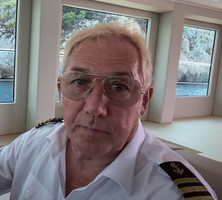
Cruising/racing
Daily rate: from € 250 to € 400 depending on the experience of the skipper, the sailing area, the size of the multihull and its track record (for racing).
Delivery
Rate per nautical mile: from € 3 to 3.50, or a fixed price per trip.
A professional skipper is able to manage a sailing or motor multihull single-handedly, and has the necessary knowledge to prepare, repair and optimize a catamaran or trimaran. A skipper is there to ensure the smooth running of operations on board. He must manage all the potential hazards, both on a technical and human level. He is the only master on board and it is he who takes responsibility for the crew and the multihull. However, his role does not stop at navigation; his ability to guide the crew and assign to each one of them their role on board is also essential. He must know how to adapt to everyone’s needs and desires, while maintaining his role as leader, which is essential for a good working environment and to avoid damage or injury. In short, he is the guarantor of your well-being and safety. He can also teach you how to sail if the boat is suitable. In any case, and the three professionals we interviewed are unanimous on this point, he must hold a Yacht Master certificate (or equivalent, such as Captain 200 in France) at least. Be careful though: the flag of the vessel must be consistent with the skipper’s qualification - unfortunately equivalence is not systematic. In most countries, skippers are required to have appropriate professional liability insurance, as they can be held responsible in case of accident or damage. On paper, all these recommendations are very standard, but in practice, when choosing a skipper with whom you will be spending a lot of time (24 hours a day on a cruise), the more experience they have the better. That’s why we would like to share with you the experience of three recognized professionals in the field of multihull sales, rentals and charters. With no less than thirty years of activity for each of them, they have had to make a number of decisions in different situations: an occasional session for clients chartering a multihull, a catamaran delivery or even a seasonal skipper of a charter unit with a professional crew. Below you can read their failsafe tips to avoid making mistakes, depending on their field of expertise.
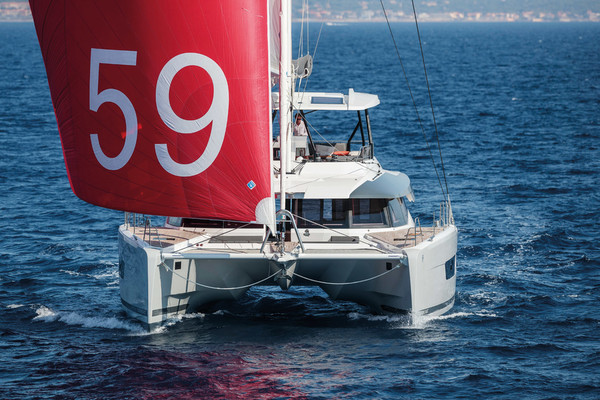
From 50 feet upwards, the management of a multihull can become too demanding for a family crew - that’s when a skipper can be called upon. In fact, most 60-foot/18-meter catamarans like this Samana 59 are sailed by a professional skipper, sometimes assisted by a host or hostess.
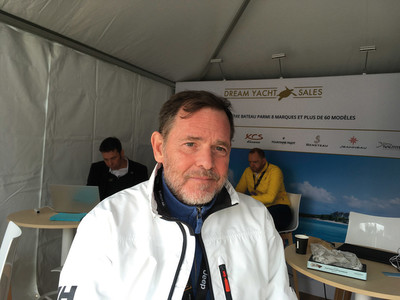
Loïc has been in the yacht charter and management business for over thirty years. He founded and manages Dream Yacht Charter, the global leader in this sector with more than 1,000 boats and fifty destinations worldwide. In fact, our man has recruited more than 10,000 skippers in the course of his career, whether for delivery, charter with a single skipper, or charter with a professional crew on vessels used for commercial purposes.
“There are no administrative exemptions. The skipper must be up to date with his qualifications (Yacht Master with equivalence) and administrative authorizations because in the event of a problem, the insurance will not cover the damage. The skipper must be an excellent sailor, leading his crew and clients in the best conditions, something which he will have learned during his initial training, but that is not all. Experience counts for a lot, and there are therefore many different profiles. Technical autonomy is important for delivery trips, while a sense of service will be decisive for chartering with holidaymakers. A hospitality profile is advantageous for high-end charters. But we must not fall into stereotypes: a skipper who is exclusively interested in customer satisfaction and much less in the maintenance of the multihull will not do. Similarly, a sailing enthusiast who takes extra care of the boat risks considering customers as disruptive elements, which is not ideal either. We have created a training school to bring professional skippers up to speed with the current expectations of both owners and charterers. The courses cover maintenance - which is becoming more and more complex - and which must be preventive, and the levels of service which have also become more demanding (since the pandemic, demand for skippers has increased by 20%). Sometimes skippers are required to help the host or hostess with certain tasks. Knowledge of the sailing area is also taught for safety, as well as for tourism. In fact, the gray area is between what the customer thinks they are entitled to as a service and how far the skipper is willing to go. Sometimes the gaps are so wide that misunderstandings can arise. We solved this problem by creating a standardization of the client/skipper relationship. We have written a charter that gives the framework of what the client can expect and what the skipper’s exact role is. Putting together a questionnaire for the client and another for the skipper also helps a lot to have a good consistency of expectations based upon the different profiles and sailing programs”.
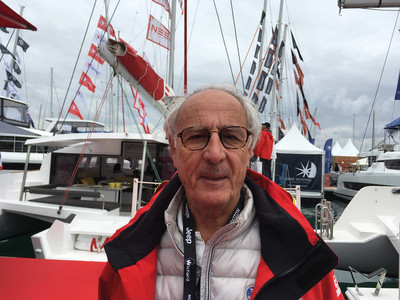
Dominique has been based in the port of Le Marin in Martinique for over twenty years. He works as a broker and runs a charter agency specialized in multihulls (bareboat and crew). He represents NEEL trimarans in the area. His experience in the field leads him to require, in addition to qualifications, at least five or six years of sailing experience with at least three or four transatlantic passages.
“The criteria for choosing a skipper for a delivery trip will be mainly based on his experience as a sailor. We do not ask him to be courteous or sociable, but to be serious and competent enough to deliver a multihull from point A to point B, and to be able, alone, to deal with a breakdown, to solve technical problems, to respect delivery deadlines depending on the weather conditions, and to take care of the boat throughout the sailing period in order to deliver a clean unit at the finish. On the other hand, a family that charters a multihull with a skipper must come back delighted with their cruise. The condition of the boat must correspond to their expectations. As for the anchorages, they will be comfortable and the landscapes unforgettable. To check all the boxes, everything depends on the skipper’s skills and his good knowledge of the region. The skipper will have to take into account the clients’ wishes as much as possible in order to make the cruise enjoyable. The skipper’s ability to take care of the multihull and his or her proper attire throughout the trip are important criteria. Unkempt, rude grumpy skippers who are unable to remain courteous can annoy the clients and will therefore be more suited to delivering boats. For charter multihulls with professional crews, a great deal of nautical experience is required, as well as a good knowledge of the sailing area, the ability to manage navigation and life on board with the rest of the crew. And of course, the skipper needs to be technically proficient in boat maintenance. Finally, these skippers will be asked to respect the cruise program that the clients have booked, to have good manners and to behave discreetly when around the passengers.”
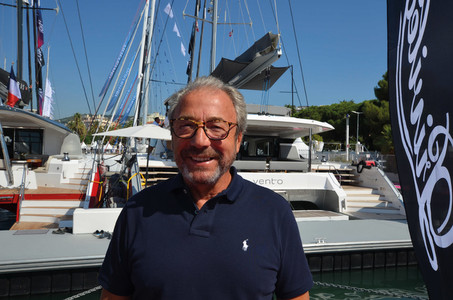
Antonio is the founder and CEO of the Barcelona-based agency Nauta Dock. This company acts as the Spanish distributor for high-end catamarans such as HH Catamarans Privilege Marine and sells exceptional second-hand multihulls such as Catana, Sunreef, and also one-offs. His experience is therefore more focused on luxury units and the related environment. The owners of these multihulls are often as demanding of themselves as they are of those they employ, so this applies to the captain too... Antonio must choose skippers to accompany owners who want to enjoy a peaceful vacation, without worrying about port maneuvers, the choice of anchorage or the various hazards that may arise. The skipper must also provide a lot of practical advice and allow his client to eventually take full or partial control of his vessel, with the objective of perhaps becoming autonomous in the future. Of course, this implies spending a lot of time together, so for Antonio, it is essential to have a good understanding of the protagonists’ personalities.
“There are two people to evaluate: the owner and the skipper. They are going to spend a lot of time together and develop their relationship doing something that they are both passionate about. I don’t place too much emphasis on qualifications; for me, it’s the experience that counts (six years minimum) and I’m interested in t hose who have previously worked as sailors.) The compatibility of personalities will be a determining factor. A common or at least understandable language is essential for people who are going to work in a cramped place for long periods of time and will have to exchange on very technical or personal subjects. Having a similar mindset is also a must. The mentality may differ depending on the support - sailboat or motor yacht - for the owner as well as for the skiper. There are also more or less demanding characters. Without resorting to caricature, the most meticulous skippers will be at ease with aC anadian or Northern European owner but could be less comfortable with a Latin clientele. All these non-nautical parameters must be taken very seriously because for long distance sailing, the atmosphere and the serenity on board are crucial. The choice depends a lot on the sailing program. For a long voyage, one might avoid the newly married skipper - he might be tempted, and this is quite normal, to favor some time ashore to start a family. On board a Privilege Series 7 or a Sunreef, service and concierge services are a prerequisite; on an HH, which may be required to race, the skipper needs to be present in order to ensure the best possible performance. It’s the skipper’s skills as a racer and teacher that will make the difference. Every skipper has his or her own profile”.
What readers think
Post a comment
No comments to show.